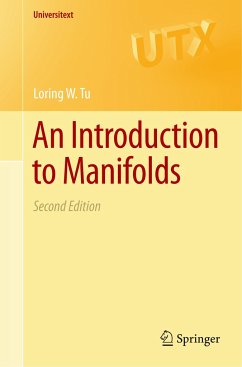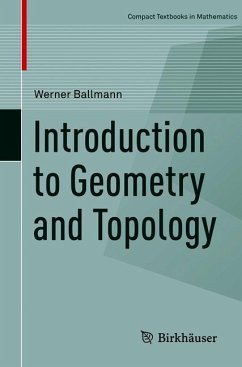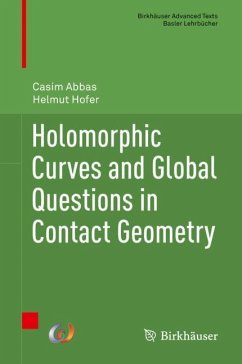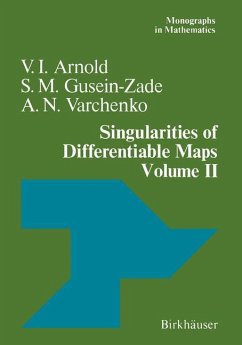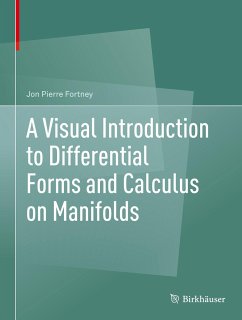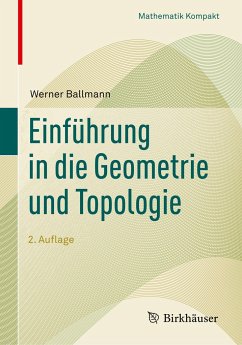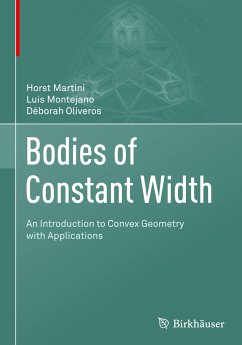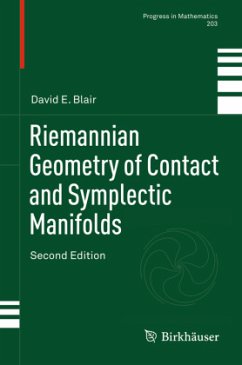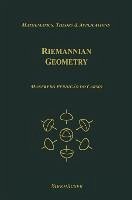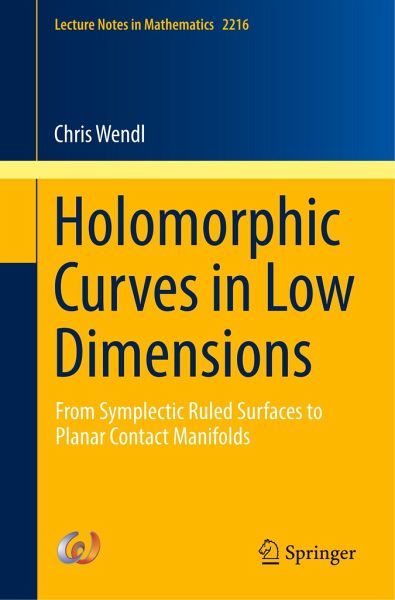
Holomorphic Curves in Low Dimensions
From Symplectic Ruled Surfaces to Planar Contact Manifolds

PAYBACK Punkte
23 °P sammeln!
This monograph provides an accessible introduction to the applications of pseudoholomorphic curves in symplectic and contact geometry, with emphasis on dimensions four and three. The first half of the book focuses on McDuff's characterization of symplectic rational and ruled surfaces, one of the classic early applications of holomorphic curve theory. The proof presented here uses the language of Lefschetz fibrations and pencils, thus it includes some background on these topics, in addition to a survey of the required analytical results on holomorphic curves. Emphasizing applications rather tha...
This monograph provides an accessible introduction to the applications of pseudoholomorphic curves in symplectic and contact geometry, with emphasis on dimensions four and three.
The first half of the book focuses on McDuff's characterization of symplectic rational and ruled surfaces, one of the classic early applications of holomorphic curve theory. The proof presented here uses the language of Lefschetz fibrations and pencils, thus it includes some background on these topics, in addition to a survey of the required analytical results on holomorphic curves. Emphasizing applications rather than technical results, the analytical survey mostly refers to other sources for proofs, while aiming to provide precise statements that are widely applicable, plus some informal discussion of the analytical ideas behind them. The second half of the book then extends this program in two complementary directions: (1) a gentle introduction to Gromov-Witten theory and complete proof of theclassification of uniruled symplectic 4-manifolds; and (2) a survey of punctured holomorphic curves and their applications to questions from 3-dimensional contact topology, such as classifying the symplectic fillings of planar contact manifolds.
This book will be particularly useful to graduate students and researchers who have basic literacy in symplectic geometry and algebraic topology, and would like to learn how to apply standard techniques from holomorphic curve theory without dwelling more than necessary on the analytical details.
This book is also part of the Virtual Series on Symplectic Geometry
http://www.springer.com/series/16019
The first half of the book focuses on McDuff's characterization of symplectic rational and ruled surfaces, one of the classic early applications of holomorphic curve theory. The proof presented here uses the language of Lefschetz fibrations and pencils, thus it includes some background on these topics, in addition to a survey of the required analytical results on holomorphic curves. Emphasizing applications rather than technical results, the analytical survey mostly refers to other sources for proofs, while aiming to provide precise statements that are widely applicable, plus some informal discussion of the analytical ideas behind them. The second half of the book then extends this program in two complementary directions: (1) a gentle introduction to Gromov-Witten theory and complete proof of theclassification of uniruled symplectic 4-manifolds; and (2) a survey of punctured holomorphic curves and their applications to questions from 3-dimensional contact topology, such as classifying the symplectic fillings of planar contact manifolds.
This book will be particularly useful to graduate students and researchers who have basic literacy in symplectic geometry and algebraic topology, and would like to learn how to apply standard techniques from holomorphic curve theory without dwelling more than necessary on the analytical details.
This book is also part of the Virtual Series on Symplectic Geometry
http://www.springer.com/series/16019





